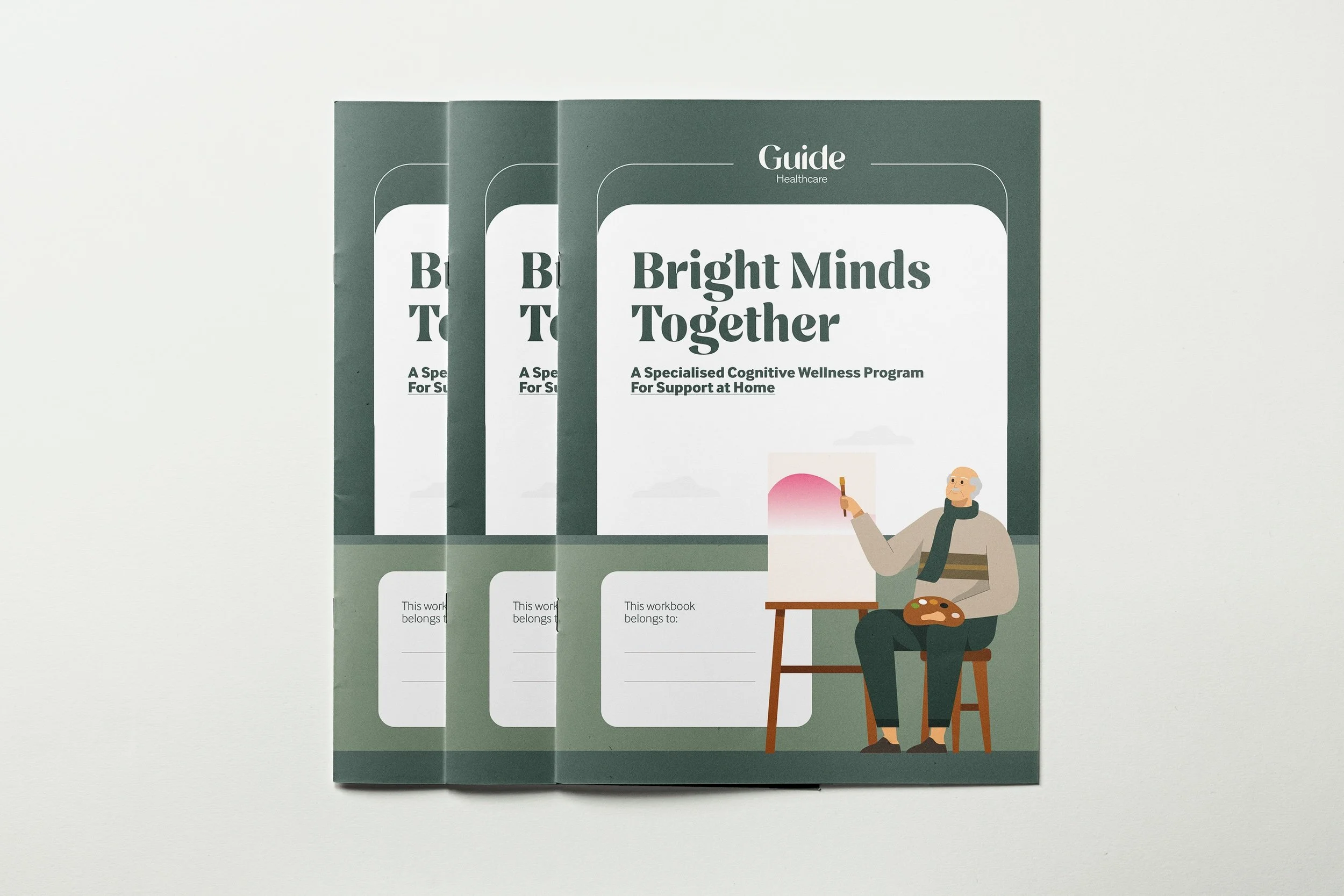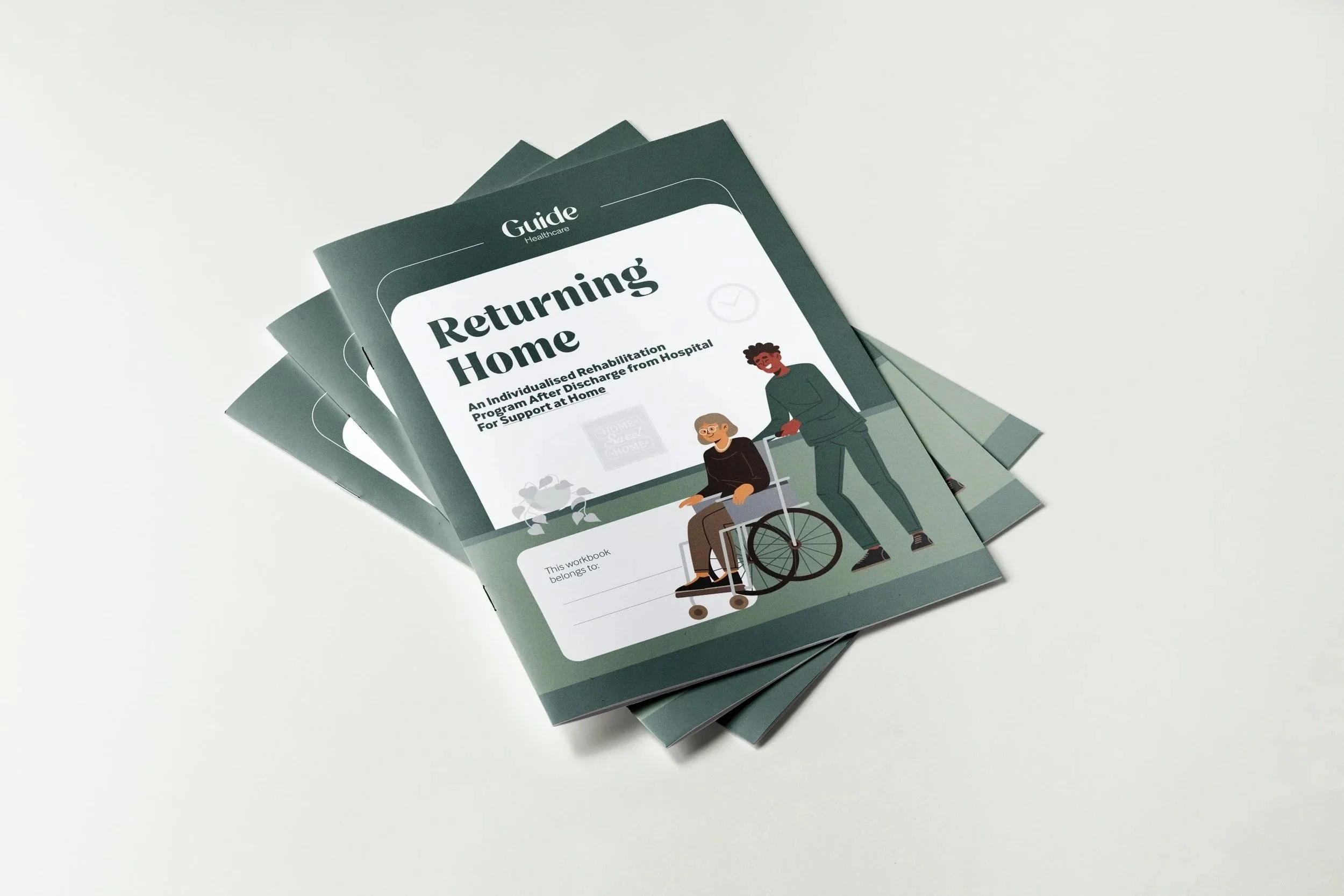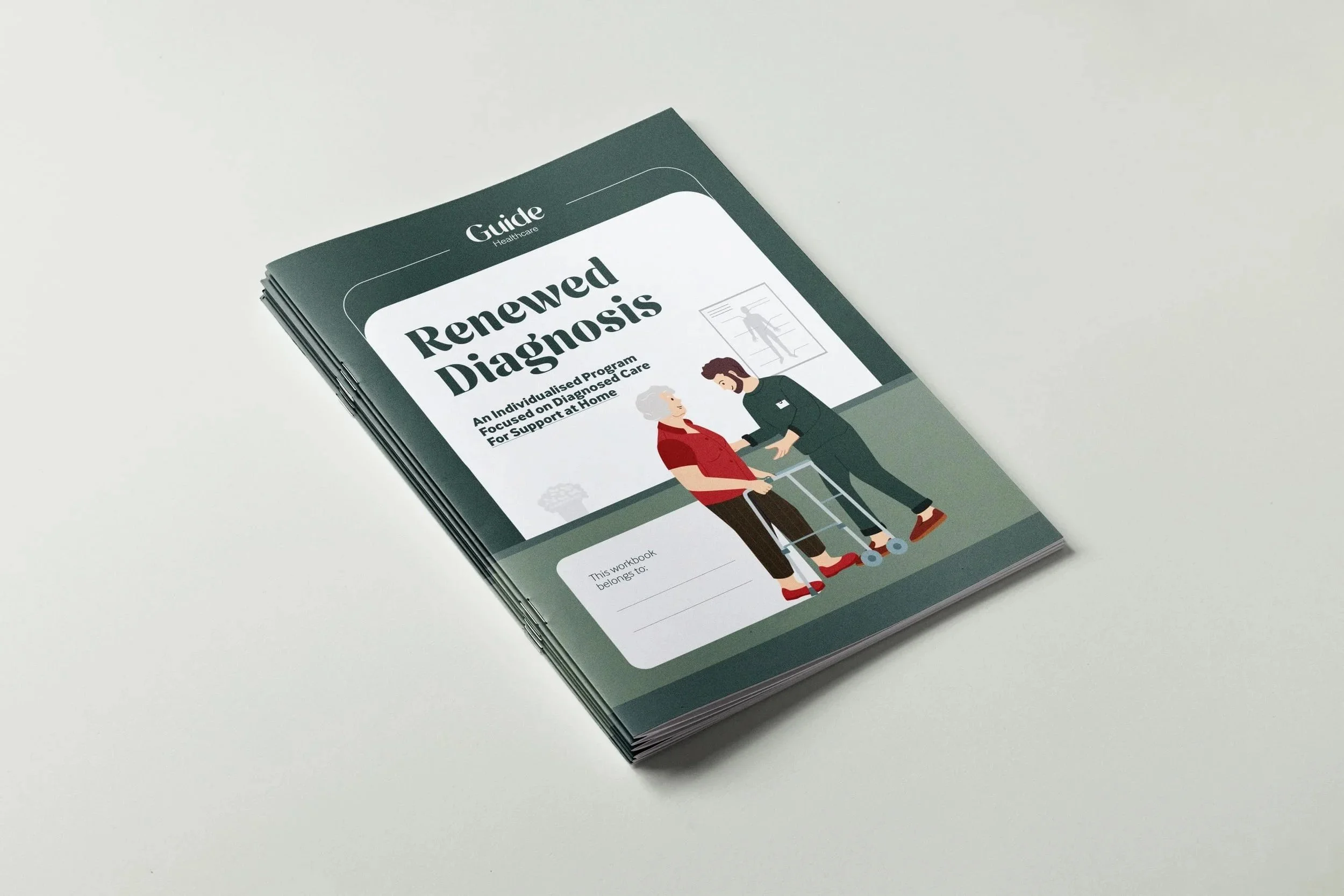Support at Home: What Providers Need to Know About Multidisciplinary Programs
The transition to Support at Home represents one of the biggest shifts in community aged care delivery in the last decade. With new expectations for reablement, budgeting, compliance, Approved Provider management and multidisciplinary coordination, providers are under pressure to deliver services that are not only clinically effective but operationally efficient.
For many Support at Home providers, navigating these reforms can feel overwhelming, especially when balancing clinical quality, financial sustainability, and administrative load.
This is where a structured multidisciplinary model becomes essential.
At Guide Healthcare, we have designed a suite of evidence-based, multidisciplinary allied health programs tailored specifically to Support at Home requirements. Each program supports older Australians to regain function, reduce risk, and maintain independence, all while dramatically reducing administrative time for providers.
Why Multidisciplinary Programs Are Essential Under Support at Home: An Allied Health Perspective
Under the Support at Home framework, providers are expected to:
Support wellness and reablement-focused care planning
Demonstrate measurable outcomes
Coordinate multiple allied health disciplines
Ensure transparent budgeting aligned with quarterly review cycles
A multidisciplinary allied-health provider allows organisations to meet these obligations through:
Coordinated Care Across Allied Health Disciplines
Physiotherapy, Occupational Therapy, Podiatry, Dietetics, Speech Pathology, and Exercise Physiology work together rather than in silos, delivering:
Reduced fragmentation
Faster identification and collaboration on client goals
Clearer care pathways
Enhanced outcomes for mobility, cognition, strength, nutrition, and safety
Reduced administrative and compliance burden for providers
Guide Healthcare’s Multidisciplinary Programs for Support at Home
Step Stronger
Step Stronger is a proven, evidence-based falls-prevention and mobility initiative tailored for older Australians at home. Through a dynamic blend of lower-limb strength training, balance and gait-control exercises, and community-access progressions (e.g., stepping out, uneven surfaces, group movement), we target the key modifiable risk factors that lead to falls. Embedded within the program is holistic education for participants, their families and care partners, enabling safe movement, confidence and independence beyond the sessions. Step Stronger empowers clients to “live well, stay safe, and step stronger every day”.
Bright Minds Together
Bright Minds Together is a multidisciplinary program designed for older adults living with dementia (or cognitive decline) and their care networks. The program combines physical activity (e.g., resistance training, mobility), cognitive stimulation (memory, attention, problem solving), and opportunities for social connection and meaningful engagement. With tailored education for care partners and families, we support both the individual and their network to remain connected, active and confident at home. The goal: “live well, stay safe, and be brighter every day”.
Returning Home
The Returning Home program supports older adults transitioning from hospital, rehab or an acute event (joint replacement, neurological event, prolonged immobility) into the home environment. Focused on rebuilding strength, restoring mobility, and boosting functional independence, this program offers a tailored pathway back into daily life. With modules for safe home-environment adaptation, mobilisation, and confidence rebuilding, Returning Home ensures clients settle safely and confidently at home. “Live well, stay safe, and be stronger every day”.
Renewed Diagnosis
The Renewed Diagnosis program is designed for older adults who have a chronic health diagnosis, such as diabetes, heart disease, osteoarthritis, Parkinson’s, Multiple Sclerosis, respiratory disease, cognitive impairment, or other long-term conditions affecting daily life. Our multidisciplinary team delivers targeted education and practical strategies, empowering clients to understand their condition, manage symptoms, improve physical function, and maintain independence. With a personalised approach built around goals, safety, and confidence, this program helps clients “live well, stay safe, and take control of their health every day.”
How Guide Minimises Administration for Support at Home Providers
Support at Home providers are facing increasing pressure to streamline administration while still ensuring quality. Guide’s multidisciplinary model is designed to reduce administrative burden, not add to it.
-
No more:
Chasing multiple contractors
Splitting budgets
Managing inconsistent communication
Repeated assessments
Guide delivers all required allied-health services under one umbrella, with one point of contact and unified reporting.
-
We provide:
Clear pricing schedules
Direct and in-direct separated billing
No hidden add-ons
Predictable budgets
Providers know exactly what will be spent before a service even begins.
-
To support communication and budgeting, providers receive:
Visual classification matrix to understand funding
Program guides
Progress summaries
Outcome snapshots and reports
These tools reduce provider admin time and make it easier to explain programs to clients and families.
-
Guide clinicians provide timely updates directly to care partners, including:
Service confirmation
Goal setting
Attendance and engagement updates within 24 hours
Comprehensive reports
Recommendations for next steps
Providers don’t have to chase information; it’s delivered proactively.
Partner with Guide Healthcare for Support at Home
Guide Healthcare is one of Australia’s leading multidisciplinary allied-health networks, delivering physiotherapy, occupational therapy, podiatry, dietetics, speech pathology, and exercise physiology across the Support at Home, Aged Care, Disability, and Community Health settings.
With structured programs tailored to Support at Home reforms, Guide helps providers deliver high-quality, measurable outcomes — without the administrative burden.
If you would like:
A copy of our Support at Home programs
Pricing schedules
Care-partner tools
A meeting to discuss your current model




